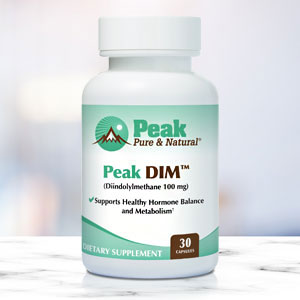Get Easy Health Digest™ in your inbox and don’t miss a thing when you subscribe today. Plus, get the free bonus report, Mother Nature’s Tips, Tricks and Remedies for Cholesterol, Blood Pressure & Blood Sugar as my way of saying welcome to the community!
When vitamin D helps lower blood pressure the most

Vitamin D deficiency increases your risk of a long list of autoimmune diseases including type 1 diabetes, inflammatory bowel disease, multiple sclerosis and psoriatic arthritis.
It can also be a setup for a higher risk of dementia.
But for one stubborn health problem, the vitamin D connection has been tricky to nail down…
Previous studies have linked it to positive changes in blood pressure, but overall, the results have been inconclusive, at least in the general population.
But new research finds that it may be a matter of when and who vitamin D can help the most…
Vitamin D impacts blood pressure in older people with obesity
Scientists at the American University of Beirut Medical Center hoped to find a direct connection between vitamin D supplements and improvements in blood pressure.
So they conducted a randomized controlled trial that included 221 older people with obesity who took vitamin D3 supplements during the study.
Historically, people with obesity often have a harder time managing blood pressure. That’s due to complex factors connected to obesity that impact blood pressure including hormonal imbalances, increased blood flow for kidneys that have to work harder, and visceral fat that increases pressure on the cardiovascular system and promotes inflammation.
They divided the study participants into two groups: one supplementing 600 IU/day of D3 (the recommended dietary allowance); and the other taking 3,750 IU/day, more than six times the RDA.
They followed the participants for a year and found that supplementation decreased blood pressure in both groups.
“Our study found vitamin D supplementation may decrease blood pressure in specific subgroups such as older people, people with obesity and possibly those with low vitamin D levels,” says Dr. Ghada El-Hajj Fuleihan of the American University of Beirut Medical Center.
“High vitamin D doses compared to the IOM’s recommended daily dose did not provide additional health benefits.”
The researchers also did not report any adverse effects among the group taking the higher dose.
Symptoms of vitamin D deficiency
Winter is coming, and that means a lot of sunless days spent indoors.
That’s why we’re at a higher risk for vitamin D deficiency this time of year. After all, it’s not called the “sunshine vitamin” for nothing.
A whopping 42 percent of us are vitamin D deficient. But unless you get regular bloodwork done to monitor your levels, you won’t know you’re one of them until symptoms start to show up.
It’s all too easy to chalk up these issues to other health concerns, but if you’re experiencing any of these, especially if they’re new symptoms, it’s best to have your D levels checked.
Symptoms of D deficiency include:
- joint pain
- hair loss
- fatigue
- dizziness
- depression
- trouble sleeping
Among post-menopausal women in particular, dry eyes can be a symptom of a vitamin D deficiency too.
Signs of dry eye include:
- dryness
- grittiness
- soreness
- burning
- redness
- temporarily blurred vision that improves when you blink
- feeling like there’s something in your eye
- sensitivity to light
- watery eyes
If you need some direction on supplementing, the National Endocrine Society issued new Clinical Practice Guidelines about who should be taking amounts of vitamin D higher than the current RDA, and have even suggested that testing levels first isn’t necessary.
Editor’s note: There are perfectly safe and natural ways to decrease your risk of blood clots including the 25-cent vitamin, the nutrient that acts as a natural blood thinner and the powerful herb that helps clear plaque. To discover these and other secrets of long-lived hearts, click here for Hushed Up Natural Heart Cures and Common Misconceptions of Popular Heart Treatments!
Sources:
Vitamin D supplements may lower blood pressure in older people with obesity — Eureka Alert
Blood Pressure Decreases in Overweight Elderly Individuals on Vitamin D: A Randomized Trial — Journal of the Endocrine Society
Obesity-Induced Hypertension:Interaction of Neurohumoral and Renal Mechanisms — Circulation Research
25-Hydroxyvitamin D deficiency is independently associated with cardiovascular disease in the Third National Health and Nutrition Examination Survey — Atherosclerosis
Latest Knowledge on the Role of Vitamin D in Hypertension — International Journal of Molecular Sciences














